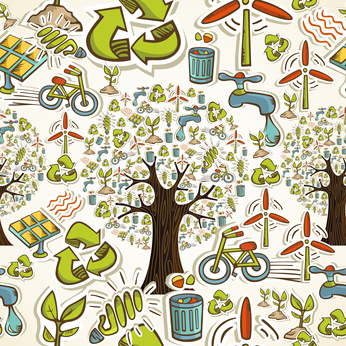These initiatives have revealed important and significant early results, including:
- Poaching for Shahtoosh wool from Tibetan or Chiru antelopes caused an 80 to 90 per cent reduction, down from a million, in the Chiru antelope population in China in the 1990-2000s. This resulted in a significant environmental, police and military effort to prevent eradication. It was combined with the establishment of some of the largest protected areas in world.
- Deforestation in Brazil’s Amazon reached its lowest level in 2012 since monitoring of the forest began in 1988. It went down by upto 78 per cent, primarily as a result of a coordinated enforcement approach using satellite imagery and targeted police operations. This was supported by large-scale efforts through Reducing Emissions from Deforestation and Forest Degradation (REDD) and other initiatives to strengthen the participatory processes of indigenous peoples, stakeholders and alternative livelihoods.

- Improved intelligence sharing among agencies has enabled INTERPOL to support countries in bigger and more effective police operations, leading to larger seizures of illegal timber and wildlife products. In 2013, Operation Lead, under INTERPOL’s Project LEAF, resulted in the seizure of 292,000 cubic meters of wood and wood products – equivalent to 19,500 truckloads and worth around US $ 40 million – in Costa Rica and Venezuela.
- Operation Wildcat in East Africa involved wildlife enforcement officers, forest authorities, park rangers, police and customs officers from five countries ‒ Mozambique, South Africa, Swaziland, Tanzania and Zimbabwe – and resulted in 240 kg of elephant ivory being seized and 660 arrests. On June 21, over four hundred rangers in Tanzania graduated as trackers to support further anti-poaching efforts.
- An Indonesian case showed how money-laundering measures can lead to prosecutions for illegal logging. A 2012 UNODC training course involved Indonesian financial investigative and anti-corruption agencies (PPATK, KPK), ranging from the federal to the local levels. After the course, investigations into suspicious transactions led to the conviction of a timber smuggler. He received eight years’ imprisonment, with evidence showing US $ 127 million passed through his accounts.
“Illegal timber activities not only ravage the Earth’s fragile biosphere, but harm a region’s economic, political, and social stability,” said David Higgins, Head of INTERPOL’s Environmental Security Unit. “A coordinated, international response is crucial to combat the criminal groups involved in forestry crime.”
Recommendations
Even given the above successes, the scale and coordination of efforts must be substantially increased and a widened effort implemented, the report says.
It issues twelve specific recommendations, including:
- Acknowledge the multiple dimensions of environmental crime and its serious impact on the environment and sustainable development goals, and help support sharing of information.
- Implement a coordinated UN and national approach to environmental crime by helping to coordinate efforts on environmental legislation and regulations, poverty alleviation and development support.
- Support UNEP as the global environmental authority to address the serious and rising environmental impacts of environmental crime and to engage the relevant coordination mechanisms of the UN system to support countries and national, regional and international law enforcement agencies with relevant environmental information.
- Encourage the donor community to recognize environmental crime as a serious threat to sustainable development and revenues, and to support national, regional and global efforts for the implementation and enforcement of targeted measures to curb the illegal trade.
- Strengthen environmental legislation, compliance and awareness, and call upon enforcement agencies and countries to reduce the role of the illicit trade in threat financing to non-state armed groups and terrorism.
- Identify end-user markets and implement consumer awareness campaigns.
- Strengthen institutional, legal and regulatory systems to further combat corruption and ensure that the legal trade is monitored and managed effectively.
Check the following link to read/download The Environmental Crime Crisis Report:
http://www.unep.org/unea/docs/RRAcrimecrisis.pdf
Source: UNEP.


















